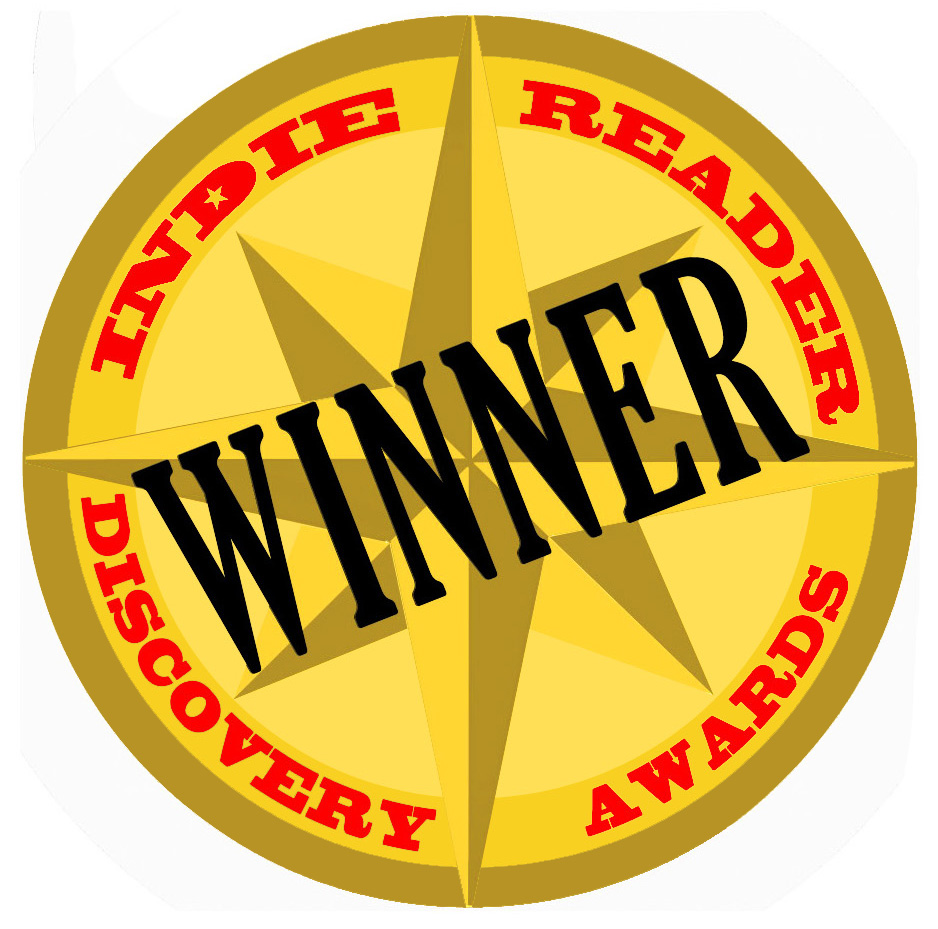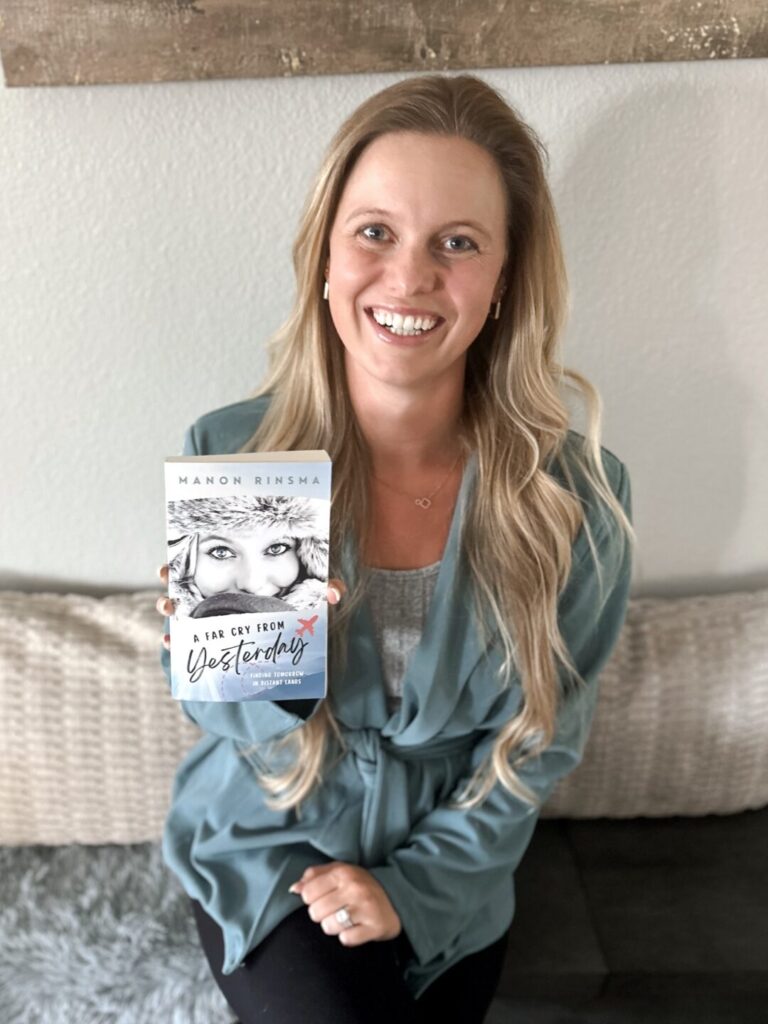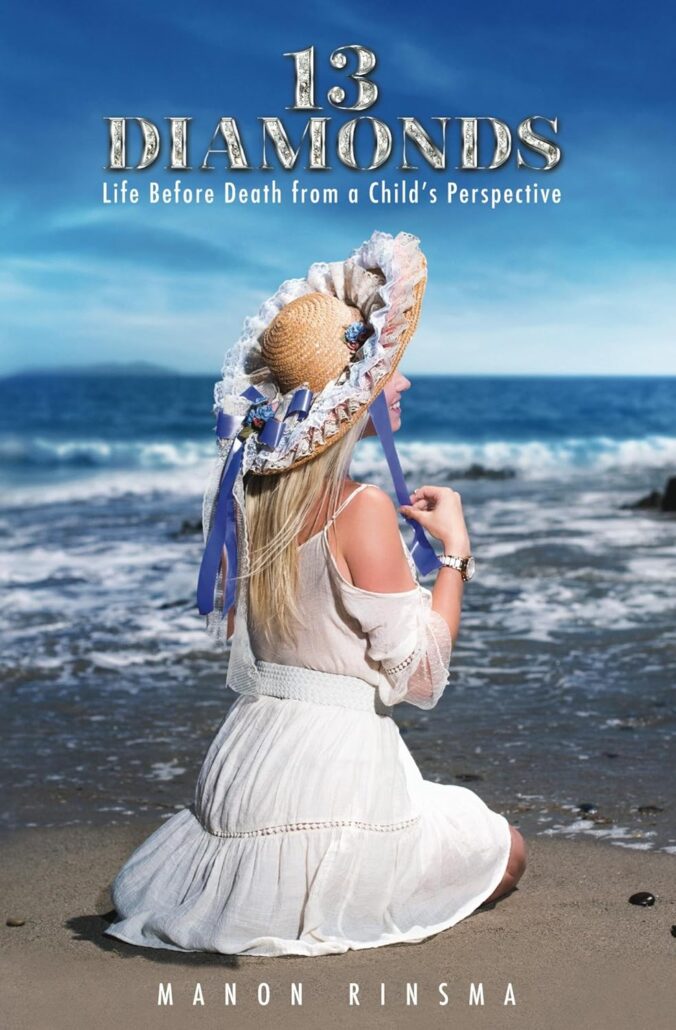
A Far Cry from Yesterday: Finding Tomorrow in Distant Lands was the winner in the Travel category in the 2025 IndieReader Discovery Awards, where undiscovered talent meets people with the power to make a difference.
Following find an interview with author Manon Rinsma.
“What an honor! This book was born from hurt and healing. It began as a journal tucked in the pocket of my backpack—scribbled between border crossings and sleepless nights—as I tried to make sense of all the unresolved things festering in my heart. What unfolded was more than a journey across continents—it was a reckoning with loss, identity, and the quiet courage to start over. To have this story recognized means the world, because it tells me that vulnerability travels too. That the quiet, messy truth of starting over can resonate. That somewhere, someone might read these pages and feel a little less alone in their own search for light. I’m deeply grateful for how the book is being received—for the readers who see reflections of their own paths, who feel encouraged, or who find companionship in the chaos.
Thank you, IndieReader, for seeing the soul of this story. And thank you to every reader who has ever felt like a stranger to themselves, and kept walking anyway. This is for you.”
What is the name of the book and when was it published?
A Far Cry from Yesterday: Finding Tomorrow in Distant Lands was published on February 1, 2025—on the 20th anniversary of my mother’s passing.
What’s the book’s first line?
In the wake of loss, amidst the echoes of fury, my journey around the world began—a quest to reclaim solace, to unearth peace within the embrace of distant lands.
What’s the book about? Give us the “pitch”.
Feeling like she no longer belonged, a young woman sets off on a backpacking journey across four continents to confront her buried grief, mend her wounded soul, and uncover the resilience needed to rewrite her own story. Through unusual destinations, new friendships, love and heartbreak, and lonely reflections, she remains determined to find her inner light, discovering that even when everything falls apart, new paths await to be forged—even in the most unlikely places.
What inspired you to write the book? A particular person? An event?
The journey itself inspired the book—because I was that young woman. Interestingly, one of the things I was really pushing myself to do during my travels around the world was write about losing my mother to brain cancer when I was twelve years old. That became my first book, 13 Diamonds: Life Before Death from a Child’s Perspective. After finally getting those words on paper, it felt right—almost necessary—to begin writing the next chapter: the hardship, the healing, and the growth that followed. This book captures the evolution of that little girl into a young woman determined to forge a brighter path for herself.
What’s the most distinctive thing about the main character? Who-real or fictional-would you say the character reminds you of?
The most distinctive thing about me as the main character, I’d like to think, is my determination to find meaning even in the messiest moments. I didn’t always know where I was headed, but I kept moving—trusting I’d recognize it once I arrived. I chose curiosity over fear, even in the darkest places. I let the world shape me, but I didn’t lose myself in it. If I had to compare myself to someone, I’d say there’s a touch of Cheryl Strayed’s rawness from Wild, the persistence of Elizabeth Gilbert in Eat, Pray, Love, and—though it’s a bold statement—even a trace of Joan of Arc’s quiet inner fire. Not in a religious sense, but in the way she stepped into the unknown, guided by something beyond logic—something she simply knew to follow.
What’s the main reason someone should really read this book?
Because it speaks to anyone who’s ever felt lost, unmoored, or unsure of where they belong. A Far Cry from Yesterday is about the kind of grief and the scars that linger quietly in the background—and the courage it takes to finally face them. But more than that, it’s a story of rebuilding, of saying yes to the unknown, and finding pieces of yourself in the most unexpected places. Whether you’ve experienced deep loss, longed for reinvention, or simply needed a reminder that healing isn’t linear, this book offers a companion for that journey. It’s honest, raw, sometimes messy—but always rooted in the belief that even when everything falls apart, you can begin again. And you don’t have to do it alone. And if you’re wondering about the world—what it looks like, feels like, tastes like—there’s plenty of that in there too.
If they made your book into a movie, who would you like to see play the main character(s)?
That’s such a vulnerable question because the main character is essentially me. But I’m obsessed with Jodie Comer’s talent. If A Far Cry from Yesterday were made into a film—or maybe a limited series, since there’s so much ground to cover—I’d love to see her take on the role. There’s a quiet intensity to her performances that resonates deeply with the emotional landscape of the story. She has this rare ability to show vulnerability and strength simultaneously, holding contradictions in a way that feels real and deeply human. My story moves through grief, identity, reinvention, and ultimately, healing—and Jodie has the range to carry all of that without it ever feeling forced. I imagine her capturing the internal conflict, the raw moments of loss, and the quiet triumphs with honesty and depth. She wouldn’t just play the part—she’d embody it.
Others I can dream up? Leo Woodall, Sydney Sweeney, Lucien Laviscount, Noah Centineo, and Leighton Meester. Now that would be iconic.
When did you first decide to become an author?
For as long as I can remember, storytelling has been my way of making sense of the world. I grew up in the Netherlands, and when I was twelve, I lost my mother to brain cancer. The day she died, I sat behind my computer and decided I wanted to write a book. I typed, “A life without a mother—how would that be?” An hour later, she was gone. That same day, I made a promise to myself: instead of imagining what it would be like to lose her, one day, I would write about the experience, the cancer journey, a daughter watching from the sidelines.
It took thirteen years—half my life at the time—but in 2018, I finally fulfilled that promise by publishing my first book, 13 Diamonds: Life Before Death from a Child’s Perspective. It was raw and cathartic—a way to process grief, to never forget, and to offer insight into the cancer journey through a little girl’s eyes.
My story of growth began with loss, but it didn’t end there. There was breaking and healing, learning and choosing. I always knew there would be a sequel. When I left to travel the world, I kept extensive journals to chronicle not only the journey within myself but also the world around me.
What’s the best and the hardest part of being an indie?
The best part of being an indie author is maintaining creative control and staying true to my voice—especially important when telling such a deeply personal story. I get to shape every aspect of the narrative exactly how I want it, without compromise. That freedom allows me to be honest and vulnerable in ways that truly reflect my experience.
The hardest part, though, is how isolating the process can feel. Writing through trauma and personal pain is already challenging, but doing it largely alone brings a very specific kind of struggle. You get stuck in your own head a lot, wrestling with vulnerability and self-doubt. When I finally hired an editor in the final stages, it felt like a lifeline—it made the journey less lonely and reminded me that I wasn’t completely on my own. That support was invaluable, especially for a story so close to my heart.
Would you go traditional if a publisher came calling? If so, why?
Absolutely. I believe that in life, together is always better than alone. Everyone brings their own unique strengths, and when you assemble a team that leverages those strengths collectively, it creates a rising tide that lifts all boats. Together, you can make a bigger difference than any one person alone. So yes, if a traditional publisher came calling with the right vision and support, collaborating to expand the reach of my stories even further would be a dream.
Is there something in particular that motivates you (fame? fortune?)
What truly motivates me isn’t fame or fortune—it’s the power of connection and healing through storytelling. Sharing my experiences and hearing from others who resonate with them reminds me that none of us are alone in our circumstances. That kind of impact, the chance to inspire resilience and hope, is what drives me to keep going.

